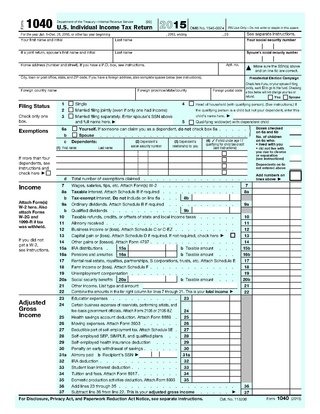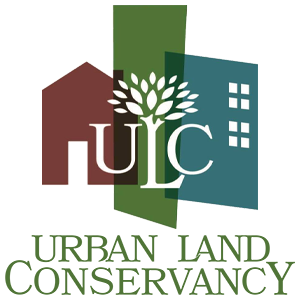Business is the practice of making one's living or making money by producing or buying and selling products. It is also "any activity or enterprise entered into for profit."

In the United States, a conservation easement is a power invested in a qualified land conservation organization called a "land trust", or a governmental entity to constrain, as to a specified land area, the exercise of rights otherwise held by a landowner so as to achieve certain conservation purposes. It is an interest in real property established by agreement between a landowner and land trust or unit of government. The conservation easement "runs with the land", meaning it is applicable to both present and future owners of the land. The grant of conservation easement, as with any real property interest, is part of the chain of title for the property and is normally recorded in local land records.

A limited liability company is the United States-specific form of a private limited company. It is a business structure that can combine the pass-through taxation of a partnership or sole proprietorship with the limited liability of a corporation. An LLC is not a corporation under state law; it is a legal form of a company that provides limited liability to its owners in many jurisdictions. LLCs are well known for the flexibility that they provide to business owners; depending on the situation, an LLC may elect to use corporate tax rules instead of being treated as a partnership, and, under certain circumstances, LLCs may be organized as not-for-profit. In certain U.S. states, businesses that provide professional services requiring a state professional license, such as legal or medical services, may not be allowed to form an LLC but may be required to form a similar entity called a professional limited liability company (PLLC).
A real estate investment trust is a company that owns, and in most cases operates, income-producing real estate. REITs own many types of commercial real estate, including office and apartment buildings, warehouses, hospitals, shopping centers, hotels and commercial forests. Some REITs engage in financing real estate.
The Low-Income Housing Tax Credit is a dollar-for-dollar tax credit in the United States for affordable housing investments. It was created under the Tax Reform Act of 1986 (TRA86) and gives incentives for the utilization of private equity in the development of affordable housing aimed at low-income Americans, with affordability restrictions on the properties expiring 15-30 years later. LIHTC accounts for the majority of all newly created affordable rental housing in the United States today. The maximum rent that can be charged for designated affordable units is based on Area Median Income (AMI), and over 50% of residents in LIHTC properties are considered Extremely Low-Income. The credits are also commonly called Section 42 credits in reference to the applicable section of the Internal Revenue Code. The tax credits are more attractive than tax deductions as the credits provide a dollar-for-dollar reduction in a taxpayer's federal income tax, whereas a tax deduction only provides a reduction in taxable income. The "passive loss rules" and similar tax changes made by TRA86 greatly reduced the value of tax credits and deductions to individual taxpayers. Less than 10% of current credit expenditures are claimed by individual investors.

A taxpayer is a person or organization subject to pay a tax. Modern taxpayers may have an identification number, a reference number issued by a government to citizens or firms.
An income trust is an investment that may hold equities, debt instruments, royalty interests or real properties. It is especially useful for financial requirements of institutional investors such as pension funds, and for investors such as retired individuals seeking yield. The main attraction of income trusts, in addition to certain tax preferences for some investors, is their stated goal of paying out consistent cash flows for investors, which is especially attractive when cash yields on bonds are low. Many investors are attracted by the fact that income trusts are not allowed to make forays into unrelated businesses; if a trust is in the oil and gas business, it cannot buy casinos or motion picture studios.

An S corporation, for United States federal income tax, is a closely held corporation that makes a valid election to be taxed under Subchapter S of Chapter 1 of the Internal Revenue Code. In general, S corporations do not pay any income taxes. Instead, the corporation's income and losses are divided among and passed through to its shareholders. The shareholders must then report the income or loss on their own individual income tax returns.

The United States federal government and most state governments impose an income tax. They are determined by applying a tax rate, which may increase as income increases, to taxable income, which is the total income less allowable deductions. Income is broadly defined. Individuals and corporations are directly taxable, and estates and trusts may be taxable on undistributed income. Partnerships are not taxed, but their partners are taxed on their shares of partnership income. Residents and citizens are taxed on worldwide income, while nonresidents are taxed only on income within the jurisdiction. Several types of credits reduce tax, and some types of credits may exceed tax before credits. An Alternative Minimum Tax (AMT) applies at the federal and some state levels.
A real estate mortgage investment conduit (REMIC) is "an entity that holds a fixed pool of mortgages and issues multiple classes of interests in itself to investors" under U.S. Federal income tax law and is "treated like a partnership for Federal income tax purposes with its income passed through to its interest holders". REMICs are used for the pooling of mortgage loans and issuance of mortgage-backed securities and have been a key contributor to the success of the mortgage-backed securities market over the past several decades.
A tax incentive is an aspect of a government's taxation policy designed to incentivize or encourage a particular economic activity by reducing tax payments.

A Massachusetts Business Trust (MBT) is a legal trust set up for the purposes of business, but not necessarily one that is operated in the Commonwealth of Massachusetts. They may also be referred to as an unincorporated business organization or UBO. Business trusts may be established under the laws of other U.S. states.

Fund accounting is an accounting system for recording resources whose use has been limited by the donor, grant authority, governing agency, or other individuals or organisations or by law. It emphasizes accountability rather than profitability, and is used by Nonprofit organizations and by governments. In this method, a fund consists of a self-balancing set of accounts and each are reported as either unrestricted, temporarily restricted or permanently restricted based on the provider-imposed restrictions.
The history of the National Register of Historic Places began in 1966 when the United States government passed the National Historic Preservation Act (NHPA), which created the National Register of Historic Places (NRHP). Upon its inception, the U.S. National Park Service (NPS) became the lead agency for the Register. The Register has continued to grow through two reorganizations, one in the 1970s and one in 1980s and in 1978 the NRHP was completely transferred away from the National Park Service, it was again transmitted to the NPS in 1981.
Credit union service organizations (CUSOs) are corporate entities in the United States that are owned by federally insured credit unions.

A low-profit limited liability company (L3C) is a legal form of business entity in the United States. Commonly referred to as a hybrid structure, it has characteristics of both for-profit and non-profit entities. L3Cs were created to comply with the Internal Revenue Service (IRS) program-related investments (PRIs) rules which allow most typically private foundations the ability to maintain tax-exempt status through investments in qualifying businesses and/or charities. With a social mission as the primary objective and a secondary objective of profit generation, the L3C legal form is considered a viable option for businesses seeking a reputation or marketability for being a social enterprise.

A Delaware statutory trust (DST) is a legally recognized trust that is set up for the purpose of business, but not necessarily in the U.S. state of Delaware. It may also be referred to as an Unincorporated Business Trust or UBO.
Non-profit housing developers build affordable housing for individuals under-served by the private market. The non-profit housing sector is composed of community development corporations (CDC) and national and regional non-profit housing organizations whose mission is to provide for the needy, the elderly, working households, and others that the private housing market does not adequately serve. Of the total 4.6 million units in the social housing sector, non-profit developers have produced approximately 1.547 million units, or roughly one-third of the total stock. Since non-profit developers seldom have the financial resources or access to capital that for-profit entities do, they often use multiple layers of financing, usually from a variety of sources for both development and operation of these affordable housing units.

Urban Land Conservancy (ULC) is a Denver based nonprofit organization established in 2003, that acquires, develops and preserves real estate assets for long-term community benefits. ULC acquires properties such as schools, future and current transit hubs, commercial space, and property identified as having community benefit. ULC also develops unique financing tools to aid in their real estate acquisitions.





